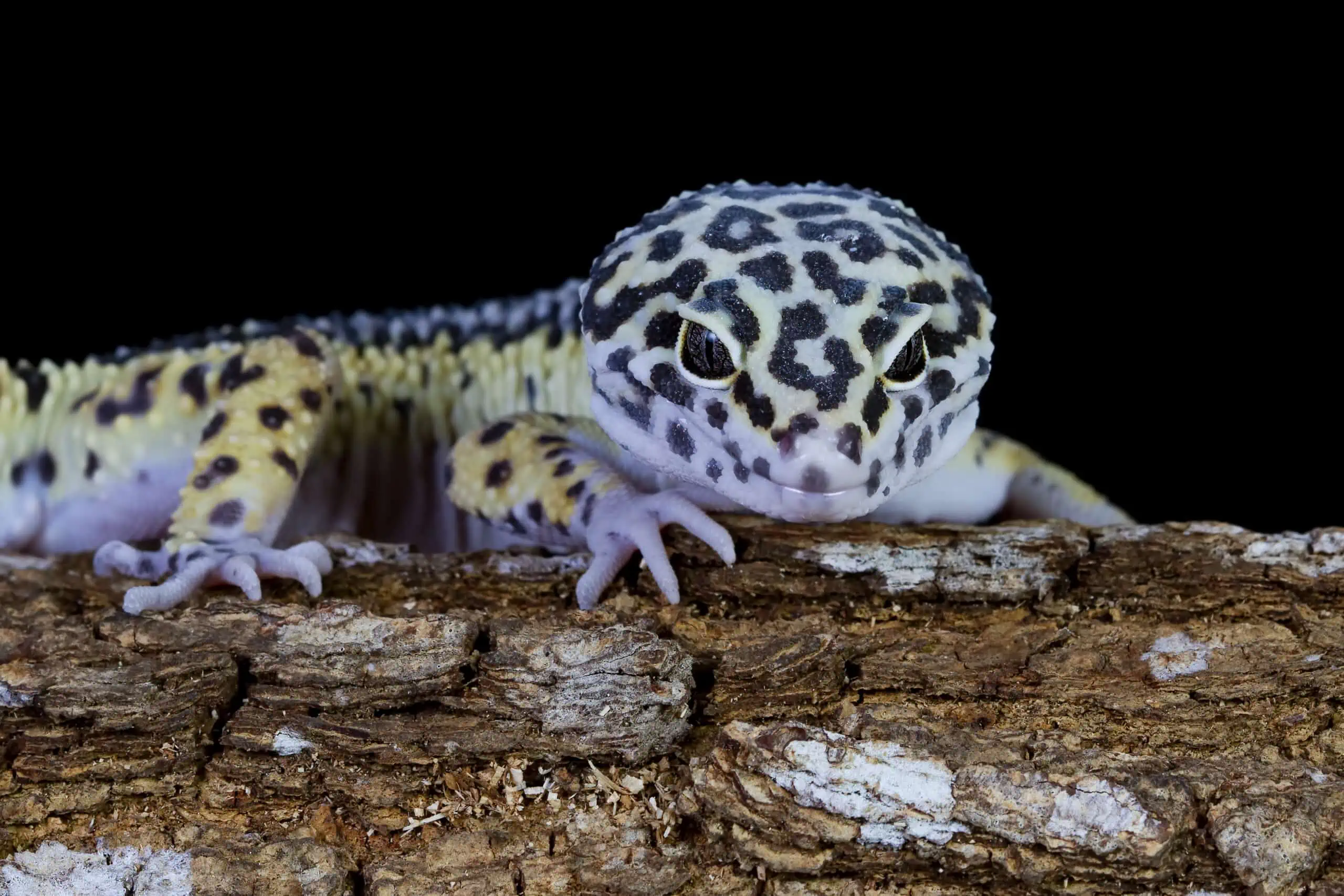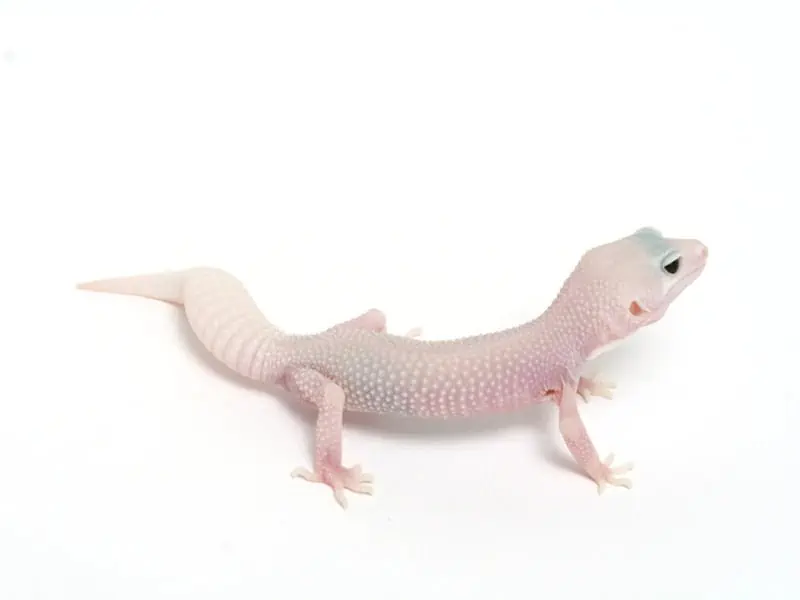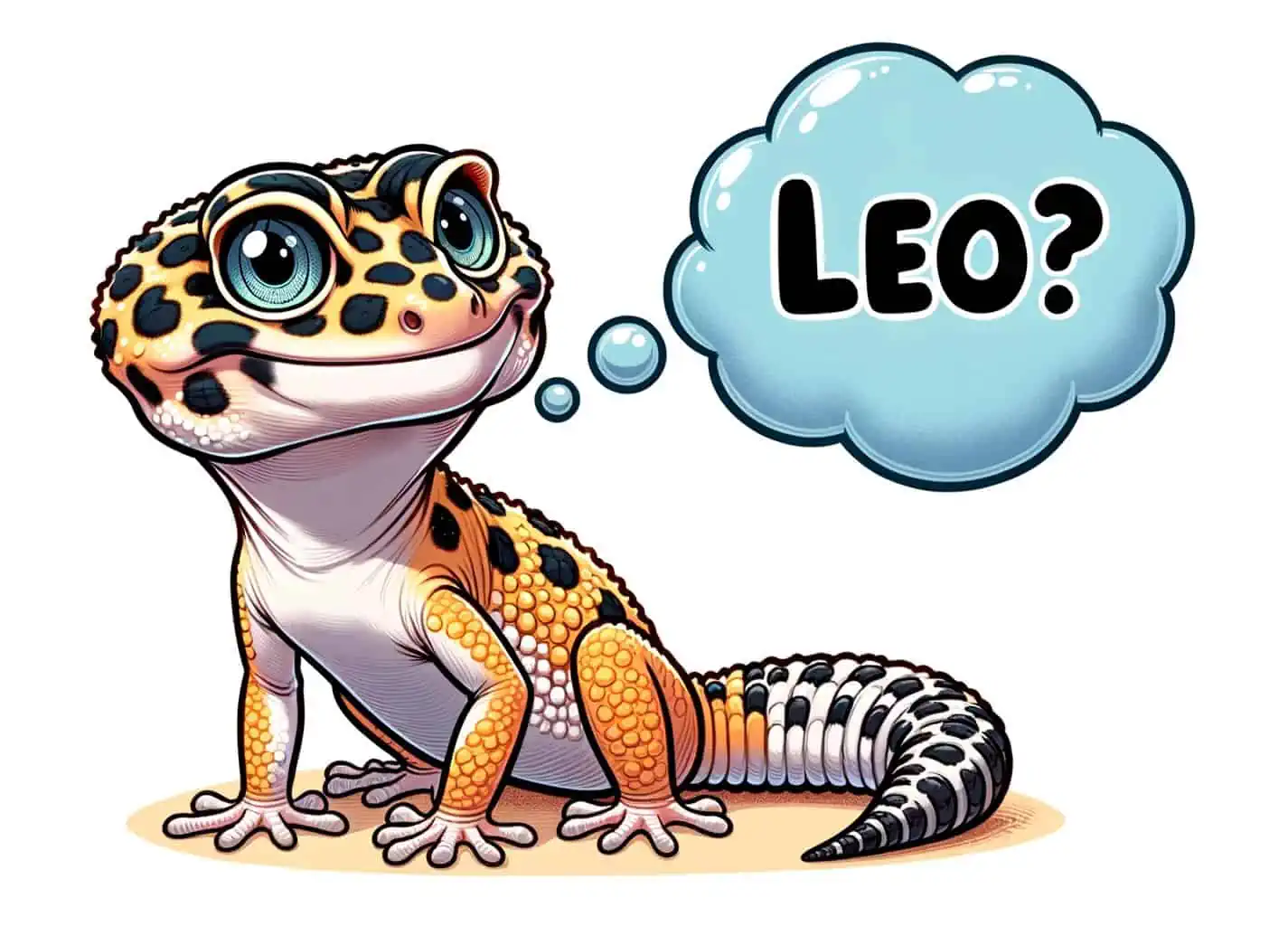Leopard Geckos make noises because they have a range of emotions and needs they communicate through various sounds. These diverse vocalizations can signify stress, fear, excitement, or even territorial claims, each sound having its unique meaning and context.
They might scream as a defense mechanism, chirp due to hunger or excitement, bark to convey fear or discomfort, click when they are annoyed or don’t want to be handled, and squeak when feeling threatened or frightened.
Leopard Gecko Vocalizations: These reptiles use varied sounds—like screams, chirps, barks, clicks, and squeaks—to communicate emotions such as stress, excitement, or discomfort.
Defensive Mechanisms: Some noises, like screaming, are defense mechanisms. Geckos may scream when threatened and can even drop their tails as an added tactic to escape predators.
Observe Behavior and Sounds: Understanding your gecko’s sounds is essential, but pairing this knowledge with behavioral observations will give you a complete picture of their well-being.
Addressing Noises: Each sound indicates specific needs or feelings. For instance, a clicking gecko might feel annoyed and may not want to be handled. Address these needs promptly to ensure their comfort.
Building Trust: Fostering a bond and trust with your gecko can reduce instances of sounds that signify stress or fear. Spend time with them, ensuring they feel safe and understood.
5 Types of Leopard Gecko Noises and Why They Make Them

Leopard Geckos exhibit a variety of fascinating sounds, each providing a glimpse into their emotional and physical state.
Why Do Leopard Geckos Scream?
Leopard geckos might let out a scream to employ their vocalizations as a defense mechanism. This scream is essentially their way of saying they feel threatened, and it’s a crucial part of their survival strategy in the wild.
Screaming acts as a loud declaration of discomfort and fear, a signal that they are in a situation they want to escape from. This can often be coupled with their ability to drop their tails, another remarkable defense tactic that distracts predators, giving them a chance to flee.
Understanding the scream of a leopard gecko is not just about recognizing a sound—it’s about tuning into their emotional state.
Screaming can vary widely among individual geckos, with some using it as a response to stress, fear, or feelings of threat, while others might scream due to their unique personal quirks and levels of socialization.
Why Do Leopard Geckos Chirp?
Leopard geckos, with their expressive nature, communicate a myriad of emotions and states through chirping, another distinctive sound in their vocal repertoire. When a leopard gecko chirps, it’s often signaling a variety of internal states or external responses, making it important for owners to understand the myriad reasons behind this behavior.
Chirping can be a manifestation of stress or fear, a small yet clear indication that something in their environment is making them uncomfortable or anxious. This sound can be a red flag for owners to investigate and rectify any potential stressors, ensuring the gecko feels secure and at ease in its surroundings.
Leopard geckos may also chirp to express territorial behavior, a vocal marker to establish dominance or claim space. It can signal disputes over territory or resources, especially when multiple geckos share the same environment. For owners, it’s important to monitor these interactions to prevent escalation and maintain harmony within the habitat.
Hunger, too, can trigger leopard gecko chirping. It’s a way for them to express their need for sustenance, a vocal cue for owners to provide the necessary nutrition. Being responsive to these hunger chirps ensures the gecko maintains optimal health and well-being.
Excitement is another emotion leopard geckos convey through chirping. Whether it’s the anticipation of food or a response to an interesting new element in their environment, a chirp can be a sign of a happy, stimulated gecko.
Why Do Leopard Geckos Bark?
When leopard geckos bark, it’s often a vocal manifestation of their defense mechanism, a sound rooted in feelings of fear or intimidation. This specific noise serves as a means to communicate discomfort or indicate the presence of a perceived threat, alerting owners to potential issues within their environment.
Leopard gecko barking is essentially their way of signaling a warning or expressing unease. It’s crucial for owners to be attuned to this sound as it can provide essential insights into their pet’s emotional state and the safety of their environment.
Addressing the causes behind the barking promptly can help in alleviating their stress and creating a more serene habitat for them.
To address barking, identifying and removing sources of stress or threats is paramount. It could be as simple as rearranging their habitat or as complex as adjusting their interaction with other pets or geckos.
Keeping leopard geckos separate from potential competitors or other pets can also mitigate the chances of barking, ensuring that they feel secure and unthreatened in their space.
Why Do Leopard Geckos Click?
Leopard geckos, with their varied vocalizations, use clicking sounds as another mode of expressing their feelings and state of mind. Clicking usually occurs when leopard geckos are feeling nervous or annoyed, serving as a clear auditory signal to their owners about their current mood and preferences.
This particular sound is often a leopard gecko’s way of expressing that they are not in the mood for interaction or handling, requesting some space and solitude. It is a distinct way for them to communicate their discomfort with being touched or disturbed, signaling a need for a respectful distance.
When a leopard gecko starts to click, it’s essential for owners to heed this signal and give them some space, avoiding handling until they seem more at ease. Ignoring these sounds and continuing to interact can lead to increased stress for the gecko, potentially harming the bond between the owner and the pet.
Why Do Leopard Geckos Squeak?
Leopard geckos are known to make a squeaking noise, a vocalization that’s closely related to their behavioral responses and emotional states. Squeaking typically manifests in situations where the gecko feels frightened or threatened, acting as an audible indicator of their discomfort or fear.
When a leopard gecko squeaks, it’s usually a signal of distress or unease, and it often occurs in new or intimidating environments or situations. For example, they might squeak when introduced to a new habitat, faced with larger animals, or during uncomfortable handling, reflecting their heightened stress levels.
Given that squeaking is linked to feelings of being threatened or frightened, building a bond of trust and establishing a secure, stable environment is crucial to minimizing occurrences of this behavior.
What To Do When The Leopard Gecko Makes Noises
When leopard geckos make noises, it’s paramount for the owners to undertake several responsive and caring steps to address any underlying issues or discomforts.
Initially, acquiring an understanding of the different types of noises and their meanings is crucial, as each sound indicates specific feelings or states.
Being attuned to the varied noises—such as screams, chirps, barks, clicks, and squeaks—allows owners to respond appropriately, considering the specific context and what the animal is communicating.
This knowledge aids in deciphering whether the gecko is feeling stressed, threatened, excited, or any other emotion, helping owners in addressing their needs accurately.
Additionally, observing the gecko’s body language and behavior in conjunction with the noises they make can provide more comprehensive insights into their well-being.
A change in posture, activity level, or eating habits, when coupled with new or intensified noises, can signal alterations in the gecko’s mental or physical health.
Once the cause of the noise is identified, it’s essential to address the issue based on the specific noise and situation.
For instance, creating a calm environment, offering a hideout, and avoiding unnecessary handling can soothe a stressed gecko.
If the gecko is making noises due to hunger or excitement, ensuring a balanced diet and providing stimulation can be beneficial.





